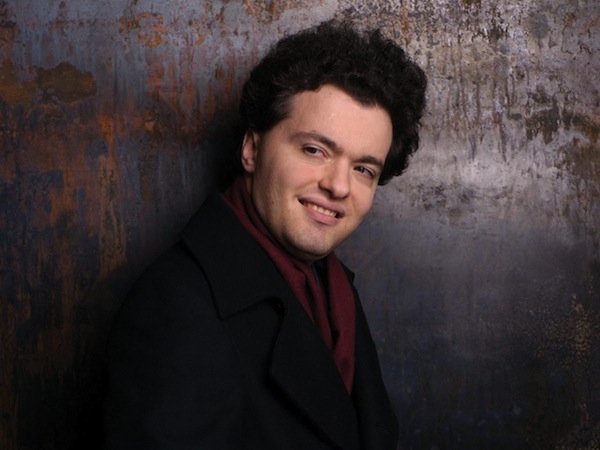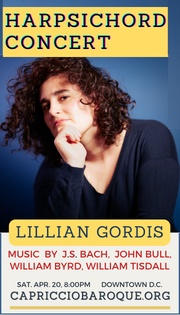Kissin returns with ferocity in Beethoven, poetry in Rachmaninoff

Evgeny Kissin performed Wednesday night at the Kennedy Center, presented by Washington Performing Arts.
Two and a half years was a long time to go without Evgeny Kissin. After his last recital in Washington, in October 2015, the Russian-born pianist took a hiatus from performing, during which he got married, wrote a memoir, and apparently composed some of his own music. Washington Performing Arts brought him back to the Kennedy Center Concert Hall on Wednesday, just in time to quell any withdrawal symptoms from his extended absence.
Kissin opened with a colossal bang in Beethoven’s Sonata No. 29. Now 46 years old, the pianist is hopefully building toward a complete cycle of Beethoven’s piano sonatas. Wednesday night’s visceral, anguished rendition of the infamous “Hammerklavier” proved a worthy follow-up to his extraordinary Sonata No. 32 in 2013.
Kissin took the fast movements of this sonata as closely as he could manage to the crazy metronome markings Beethoven indicated for the piece. The haste made the first movement impetuous, even manic in style, with a few uncharacteristic rough spots in the massive chords of the opening motto. Yet, for all its speed, the playing was never metronomic, with plenty of rhythmic freedom to match the massive dynamic contrasts, from delicate curlicues to furious trills.
Likewise the Scherzo, though perhaps not as fast as it possibly could be, exploded with anger. Kissin emphasized the ranting tirades that precede the return to the more genial main theme with a garrulous ferocity. Near the end, Beethoven’s curious hammering of the B-natural until it yields and returns to the home key of B-flat seemed like an angry fit from the composer, stubbornly banging on a malfunctioning key.
Continuing the game of wild contrasts, Kissin took the slow movement at an almost glacial tempo. With careful weighting of each chord in the homophonic opening of this tragic aria, the dissonances glowed and trembled. Heavily applied rubato gave a spontaneous feel to the melody and its countermelodies, as Kissin compensated for some unctuous slowness with matching forward motion.
He savored the tense transition into the fugue of the final movement like a wistful memory, occasionally enlivened by an efflorescence of soft runs. When the fugue finally launched itself, he dove in with gusto, the fast tempo underscoring the brilliance of his trills, a major motif in the subject. Beethoven throws every contrapuntal technique in the book at that subject, all of which Kissin unpacked exuberantly, pausing only for a reverent meditation over the Bach-like chorale section near the end.
A set of Rachmaninoff preludes after intermission felt like a well-earned trip to the pastry cart. Kissin has played a lot of Prokofiev, Stravinsky, even more obscure Russians over the years, but not much Rachmaninoff. He played the first seven Preludes from the Op. 23 set and three selected from the Op. 32 set as a continuous group, not allowing any applause in his typically solemn manner.
While the less inspired of the Preludes, like no. 1 and 6 tended to lay flat on the page, Kissin made a mark with the others. In Op. 23, he gave the heroic no. 2 an inspiring boldness and used finely varied staccato attacks in no. 3 to create a Mephistophelian veil of gloom. The crossing of the left hand in no. 4 was balletic in grace, revealing the tender melody concealed in the middle of a thicket of other sounds. The martial crispness and booming volume of no. 5 recalled the composer’s own performance of the work.
In Op. 32, no. 10 was the high point of the group, a thrilling rendition that had the feel of a one-man piano concerto, paired daringly with the gossamer tapestry of singing left-hand melody and flexible right-hand patterns in no. 12. No. 13 made for a somewhat curious conclusion, chosen perhaps because of its absurd final cadence, a relentless repetition of the tonic chord recalling Beethoven’s occasional excesses in that department.
For those running the office pool, Kissin responded to extended ovations with four encores this time: Scriabin’s Etude in C sharp minor, Op. 2, no. 1, Rachmaninoff’s Prelude in C sharp Minor, Op. 3, no. 2, and Tchaikovsky’s Meditation. Between the first two was a Kissin original, a jazzy Toccata that seemed equal parts Nikolai Kapustin and Art Tatum. Apparently his vacation suited him well.







Posted May 18, 2018 at 10:11 am by Simon
When can I collect my prize for winning the pool? Fantastic review, Charles.